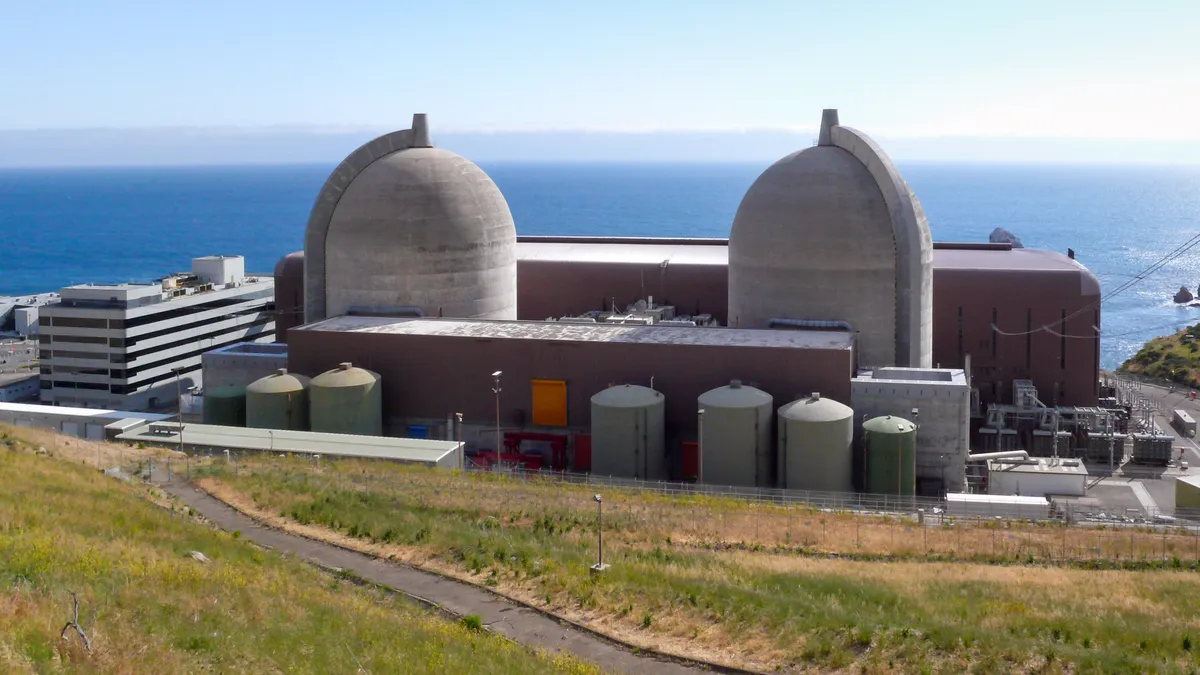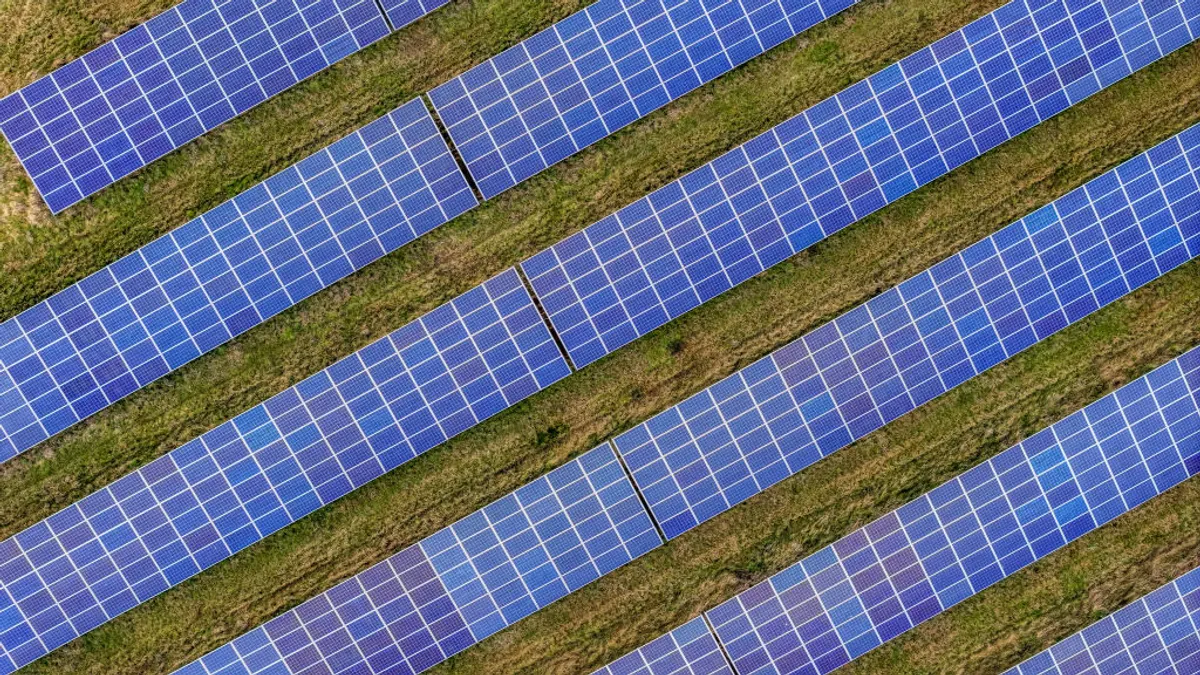A 2,240 MW nuclear plant in California scheduled for decommissioning could remain open in the first round of conditional funding intended to keep certain U.S. nuclear plants from shutting, the Department of Energy announced Monday.
Unit 1 at the Diablo Canyon Power Plant, owned and operated by Pacific Gas and Electric Co., was scheduled to be decommissioned in 2024 and Unit 2 the following year. The plants have been conditionally selected to receive $1.1 billion from DOE’s Civil Nuclear Credit program. Final terms must be negotiated and made final by DOE.
Federal officials say the award would save 1,500 jobs.
Funding from the Bipartisan Infrastructure Law includes the $6 billion Civil Nuclear Credit program intended to support “safe and reliable” nuclear energy facilities, preserve jobs and reduce carbon emissions, DOE said. As the nation’s largest source of carbon-free power, nuclear reactors are a “vital resource” to achieve President Joe Biden’s goal of 100% clean electricity by 2035 and a net-zero emissions economy by 2050, the agency said.
“This is a critical step toward ensuring that our domestic nuclear fleet will continue providing reliable and affordable power to Americans as the nation’s largest source of clean electricity,” said U.S. Secretary of Energy Jennifer M. Granholm.
Ken Cook, president of the Environmental Working Group, said the Biden administration’s decision is misguided and “sets a dangerous precedent for other regulated energy states and utilities to keep aging, dilapidated nuclear plants operating.”
He said taxpayer money would be better spent on renewable sources of electricity such as solar, wind and storage.
Patti Poppe, CEO of PG&E, said in a news release that the federal decision is “another very positive step forward to extend the operating life of Diablo Canyon Power Plant to ensure electrical reliability for all Californians.”
Applicants seeking federal money must prove their reactor faces closure for economic reasons and that closing the reactor would lead to an increase in air pollution because of power production from other sources. Applicants also must be approved by the U.S. Nuclear Regulatory Commission for safe operation.
California regulators approved a plan in 2018 to close the Diablo reactors, the last in the state. Lawmakers reversed course this year because not enough new power resources are expected to come online before 2024.
An application for the Civil Nuclear Credit program by Holtec International for federal aid to reopen Michigan's Palisades nuclear power plant was denied recently. A spokesman said the company understood that trying to re-start a shuttered nuclear plant would have been a challenge and a first for the industry.
The Nuclear Energy Institute says plants are at risk of closing because most electricity markets in the U.S. have not been designed to account for the full benefits of clean energy sources.
Nuclear power provides 50% of the carbon-free electricity in the U.S., but shifting energy markets and other economic factors have resulted in the early closures of 13 commercial reactors, DOE said. The plant shutdowns have led to an increase in carbon emissions, poorer air quality and the loss of thousands of high-paying jobs, the agency said.
The first Civil Nuclear Credit award cycle set as its priority reactors facing the "most imminent threat of closure," DOE said. Applications are limited to reactors that announced intentions to shut due to economic factors. The second cycle will include reactors projected to close in the next four years.














